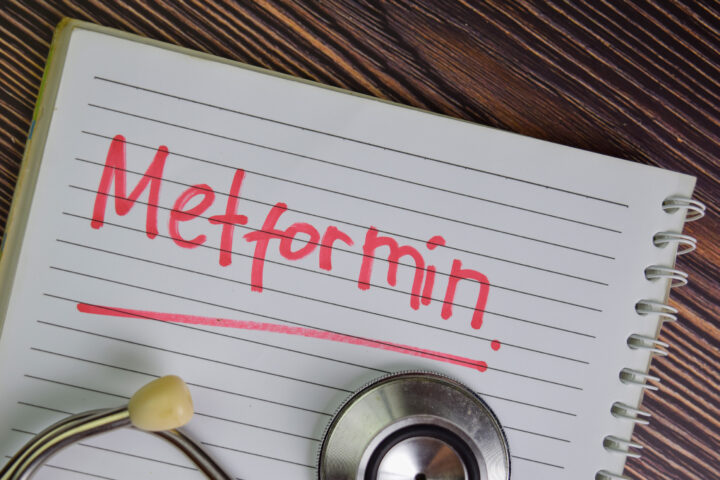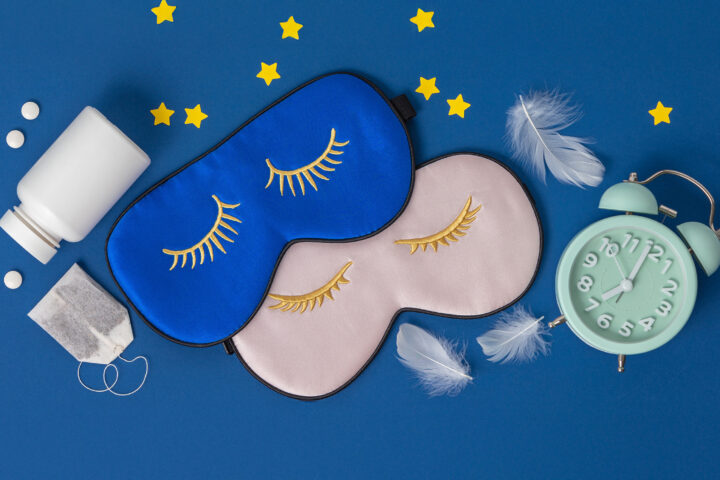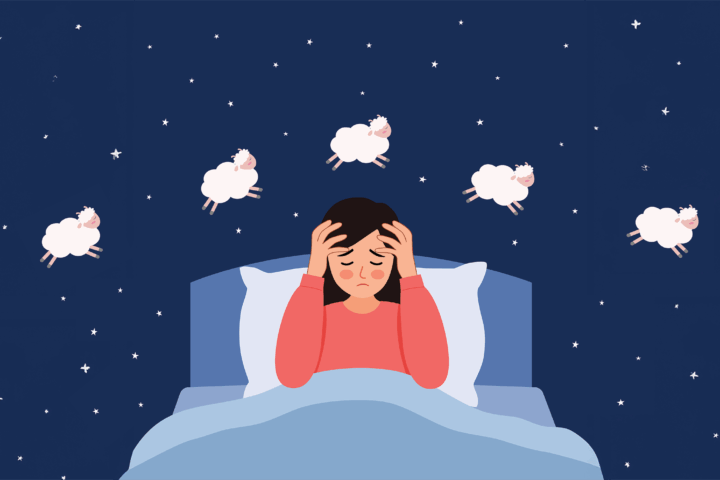We often hear about the essentials of life – water, food, and air. However, one fundamental aspect that often gets overlooked is sleep. Think of sleep not just as a break from our daily routines, but as the body’s built-in repair and maintenance system. Every time we drift into slumber, our body gets busy repairing tissues, muscles, and organs, and consolidating our memories. Without adequate sleep, we’re essentially depriving our bodies of the necessary downtime to rejuvenate and set us up for success in our waking hours.
Sleep and Immune Health
Lack of sleep can affect your immune system. Studies show that people who don’t get quality sleep or enough sleep are more likely to get sick after being exposed to a virus, such as a common cold. What’s more, if you do get sick, lack of sleep can also affect how quickly you recover.
During sleep, your immune system releases proteins called cytokines, some of which help promote sleep. Certain cytokines are needed in greater numbers when you have an infection, inflammation, or when you’re under a lot of stress. However, if you’re not sleeping enough, your body might not make as many of these helpful proteins. Plus, the number of infection-fighting cells in your body can drop if you’re short on sleep, making it even harder to fend off illnesses.
Sleep and Mental Health
Our brains, like our other organs, require rest. The link between sleep and mental health is well documented. Chronic sleep deprivation has been associated with a plethora of mental health issues, including depression, anxiety, and mood swings. Adequate sleep, on the other hand, is known to enhance cognitive functions, such as problem-solving, decision-making, and memory retention. Moreover, during deep sleep stages, our brain flushes out toxins that accumulate throughout the day, which is essential for maintaining optimal neural health. In simple words, sleep acts as a mental health booster and a buffer against everyday stressors.
Sleep and Physical Health
On the physical front, sleep plays a pivotal role in various functions. For athletes or fitness enthusiasts, it’s the time when muscles recover and grow after a workout. For the everyday person, it helps in maintaining a healthy balance of hormones, including those that regulate appetite. This means, with consistent sleep, we are less likely to make poor food choices or overeat. Moreover, sleep aids in the regulation of insulin, which reduces the risk of metabolic disorders like type 2 diabetes.
Sleep and Aging
Researchers at Harvard found that sleeping five hours or fewer per night might increase mortality risk by as much as 15 percent. Even modestly reduced sleep, six to seven hours a night, was associated with increased risk for coronary artery calcification, an early predictor of heart attack risk.
Also, conditions that affect sleep quality like sleep apnea, a sleep disorder where breathing frequently stops and starts during sleep, further worsen health outcomes. There is growing evidence linking sleep apnea with cardiovascular diseases like stroke, hypertension, and irregular heartbeat.
In a world that’s constantly moving, where the hustle is celebrated, and burnout is almost a rite of passage, prioritizing sleep might seem counterintuitive. But as science and research suggest, the benefits of adequate sleep enhance every aspect of our health, from our immune system to our mental faculties. By ensuring we get enough rest, we’re not just boosting our health and well-being but also enhancing our productivity, creativity, and overall quality of life. Remember, sleep isn’t a luxury, it’s a necessity. Embrace it, prioritize it, and reap the myriad benefits that come with it.
References
- Cohen S, Doyle WJ, Alper CM, Janicki-Deverts D, Turner RB. Sleep habits and susceptibility to the common cold. Arch Intern Med. 2009;169(1):62-67. doi:10.1001/archinternmed.2008.505
- Colten HR, Altevogt BM, Institute of Medicine (US) Committee on Sleep Medicine and Research, eds. Sleep Disorders and Sleep Deprivation: An Unmet Public Health Problem. Washington (DC): National Academies Press (US); 2006.
- King CR, Knutson KL, Rathouz PJ, Sidney S, Liu K, Lauderdale DS. Short sleep duration and incident coronary artery calcification. JAMA. 2008;300(24):2859-2866. doi:10.1001/jama.2008.867
- Liu S, Wang X, Zheng Q, Gao L, Sun Q. Sleep Deprivation and Central Appetite Regulation. Nutrients. 2022;14(24):5196. Published 2022 Dec 7. doi:10.3390/nu14245196
- Olson EJ. Lack of sleep: can it make you sick?. November 28, 2018. Accessed October 27, 2023. https://www.mayoclinic.org/diseases-conditions/insomnia/expert-answers/lack-of-sleep/faq-20057757
- Opp MR, Toth LA. Neural-immune interactions in the regulation of sleep. Front Biosci. 2003;8:d768-d779. Published 2003 May 1. doi:10.2741/1061
- Scott AJ, Webb TL, Martyn-St James M, Rowse G, Weich S. Improving sleep quality leads to better mental health: A meta-analysis of randomised controlled trials. Sleep Med Rev. 2021;60:101556. doi:10.1016/j.smrv.2021.101556
- Singh T, Ahmed TH, Mohamed N, et al. Does Insufficient Sleep Increase the Risk of Developing Insulin Resistance: A Systematic Review. Cureus. 2022;14(3):e23501. Published 2022 Mar 26. doi:10.7759/cureus.23501
- Sleep and Health. Harvard Medical School. October 1, 2021. Accessed October 27, 2023. https://sleep.hms.harvard.edu/education-training/public-education/sleep-and-health-education-program/sleep-health-education-86#10.
- Tietjens JR, Claman D, Kezirian EJ, et al. Obstructive Sleep Apnea in Cardiovascular Disease: A Review of the Literature and Proposed Multidisciplinary Clinical Management Strategy. J Am Heart Assoc. 2019;8(1):e010440. doi:10.1161/JAHA.118.010440
- Vitale KC, Owens R, Hopkins SR, Malhotra A. Sleep Hygiene for Optimizing Recovery in Athletes: Review and Recommendations. Int J Sports Med. 2019;40(8):535-543. doi:10.1055/a-0905-3103











